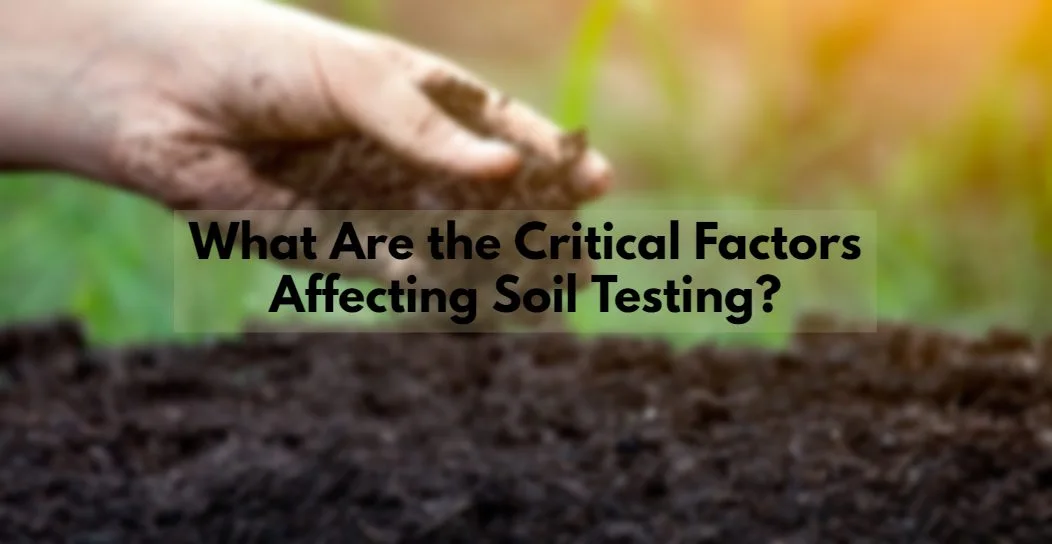Soil is the most important constituent in land formation and is also the most crucial element to be used as a building material. The compaction of soil makes or breaks a building structure in no time. Compaction testing in Edmonton is essential during building construction or before the project’s commencement. Soil testing in Edmonton is one aspect while considering the other factors that can affect the compaction of soil is another. With expert opinion and considerations; there are seven important factors that need to be looked over for using soil for maximum strength and compaction during any construction project.
Seven Factors Affecting the Soil Compaction
Central Material Testing offers you the best compaction testing in Edmonton and our experts have years of experience making the soil give maximum benefits to your construction site. The clear evaluation and Soil Testing in Edmonton at our laboratories have listed that there are some factors that need to be carefully handled at construction sites. There are seven deep factors to ponder before compacting the soil on any construction project;
- Type of Soil
What kind of soil is used in the construction project requires the closest evaluation and has a great influence on soil compaction characteristics? Moreover, sandy soils and gravelly soils or coarse-grained are pliable for easy compaction. Compaction testing in Edmonton also revealed that well-graded granular soils achieve a high degree of dry density and habitually compact easier. Moreover, coarse-grained soils produce higher densities compared to clays and also, and well-graded soil can be compacted to higher density.
Cohesive soils contain a high quantity of air voids. This soil group requires more water to minimize air voids and therefore the optimum moisture content is high. Adding water makes this soil plastic and requires more compaction effort.

- Compactor Type
The compaction comes with the proper compaction equipment that can be decided on the relative type of soil that needs to be compacted. The subsequent table can be employed as an orientation to select the type of equipment for diverse types of soils.
- Pneumatic Tired Roller: Gravel, sands, silty soil, clayey soils
- Rammer: Soils in narrowed spaces
- Smooth Wheel Roller: Gravelly sand, Crushed rock
- Sheepsfoot/Padfoot Roller: Clayey soil, silty soil
- The thickness of Lift/Layer thickness
The level of compaction is inversely proportional to the layer thickness of lift. For instance, given compaction energy, a thicker layer will be less compact as compared to a thin layer. The reason behind this is, for thicker soils, the energy input per unit weight is small. Thus, it is very essential to choose the right thickness of the layer separately to achieve the preferred density. The thickness of the layer is reliant on several other factors including:
- Type of soil
- Weight of the roller
- Type of roller
- The contact pressure of the drum
Normally, a 200 to 300 mm layer thickness is employed in the field to attain homogeneous compaction.
- Moisture content
Compaction testing in Edmonton reveals that proper control of moisture content in soil is required for attaining desired density. If the compaction of soil is near its optimum moisture content; Maximum density with minimum compacting effort can be achieved. Soil with less than its optimum moisture content requires a calculated amount of water that should be added to the soil with a sprayer devoted to a water tanker and mixed with the soil by a motor grader for constant moisture content. Conversely, if the soil has more moisture, a proposed requirement is drying by airing to reach up to the optimal moisture content.
- Number of roller passes
It is clear that density rises as the number of roller passes increases. Though, there are two significant things to remember.
- After a definite number of roller passes, there is no additional increase in density.
- An intensification of roller passes demands more cost on the project.
It is critical to control the number of rollers passes for any type of Soil Testing Edmonton at optimal moisture content. Field compaction testing in Edmonton is carried out to save the compaction facet of earthwork while attaining the desired level of density.
- Contact Pressure
Contact pressure relies on the roller wheel’s weight and the contact area. For pneumatic rollers, the tire inflation pressure also regulates the contact pressure in addition to the wheel load. A higher contact pressure increases the dry density and lowers the optimum moisture content.

- Speed of Rolling
The speed of rolling has a significant bearing on the roller output. This requires two important things to be considered.
- The greater the speed of rolling, the further length of the embankment can be compressed in one day.
- At greater speed there is probable to be inadequate time for the wanted deformations to take place and further passes may be required to attain the required compaction.
There must be an equilibrium between these two deliberations. Usually, the speed of all rollers is restricted to about 5 km/hour. Moreover, in the case of a vibratory roller, speed was created to be an important factor because the number of vibrations per minute is not associated with its accelerative speed. Consequently, the slower the speed of travel, the additional vibrations at a given point, and the lesser number of passes required to attain a specified density.
Central Material Testing is a Canadian-based company offering Materials Testing in Edmonton for superior construction results. Our experts make the arrangement according to the desired requirement for the compaction testing in Edmonton keeping in view the important factors to be considered. Our services are for Edmonton, Alberta, and its allied region. We guarantee 100% results for the onsite and laboratory compaction testing in Edmonton with 24 hours turnaround time. Get the quote for the right services at CMT for superior support in your construction projects. We are 24/7 available to our customers.



Leave a Reply